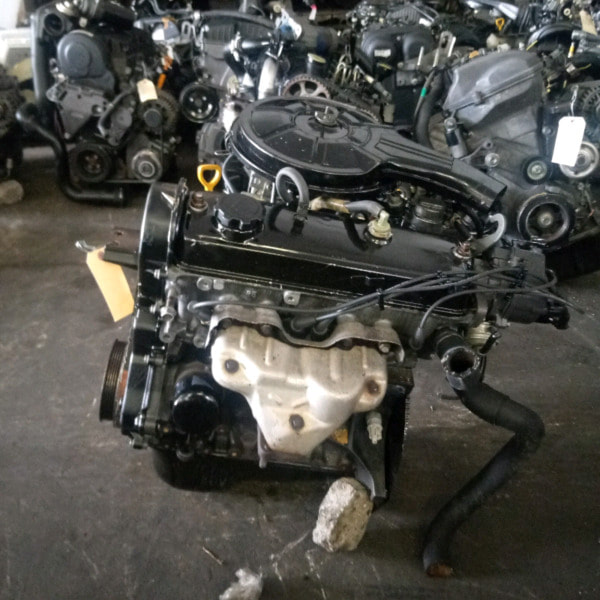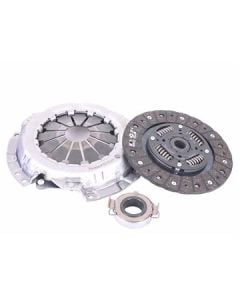Engine Buying Expert Tips on Picking the Right Engine for Your Certain Requirements
Choosing the appropriate engine for your specific demands entails an intricate interplay of elements that go beyond plain horsepower figures. By delving into the details of power versus effectiveness, examining gas scores, and budgeting for long-term prices, one can truly maximize their engine selection.
Power Vs. Effectiveness: Locating the Equilibrium

When choosing an engine, it is critical to strike an equilibrium between power and performance to fulfill your details demands efficiently. Power refers to the engine's capability to generate power for propulsion, figuring out variables like acceleration, pulling capacity, and overall efficiency (Toyota Tazz Engine For Sale). On the various other hand, effectiveness associates with just how well the engine makes use of gas to produce power, impacting aspects such as fuel economic climate and ecological kindness
Attaining the best balance in between power and efficiency is vital due to the fact that an engine that is as well powerful might consume excessive fuel, causing higher operating expense and unnecessary stress on the atmosphere. On the other hand, an engine that focuses on effectiveness over power may lead to slow-moving performance, especially in requiring scenarios like towing heavy lots or driving uphill.
To make a notified choice, take into consideration variables such as your normal driving conditions, the designated use the vehicle, and your individual preferences. By examining your top priorities and demands, you can pick an engine that strikes the excellent balance between power and performance, making certain optimum efficiency while minimizing ecological effect and operating expense.
Comprehending Engine Size and Kind

In addition, engine kind plays an essential duty in identifying the performance characteristics of an engine. Usual engine types include inline engines, V engines, and rotary engines, each with its distinct benefits and downsides. The engine type influences aspects such as the engine's dimension, weight circulation, and power delivery. Recognizing the interplay in between engine size and kind is important in choosing an engine that lines up with your particular requirements and priorities, whether it be power, efficiency, or a balance of both.
Consider Your Car's Needs
If you are looking for an engine for a sturdy truck that will certainly be made use of for towing, you will certainly need a powerful engine with high torque capacities. On the other hand, if you are picking an engine for a small automobile mainly used for city travelling, gas effectiveness might be a much more vital variable to think about.

Assessing Gas Performance Rankings
Analyzing gas efficiency scores is a vital facet of picking the appropriate engine for your car, guaranteeing price savings and ecological sustainability. Gas efficiency scores, typically gauged in miles per gallon (MPG) for gasoline engines or kilowatt-hours per 100 miles (kWh/100 miles) for electrical engines, suggest how far a lorry can take a trip on a particular quantity of gas or electricity. Higher MPG or reduced kWh/100 miles worths represent extra effective engines, equating to reduced gas costs and lower carbon emissions.
Additionally, compare different engine alternatives within the very same automobile class to determine the most cost-effective choice. Variables such as engine dimension, weight, aerodynamics, and hybrid or electric capacities can all affect gas effectiveness.
Budgeting for Long-Term Costs
Strategically intending for lasting costs is crucial when picking an engine, guaranteeing monetary sustainability over the lorry's life-span. While the initial purchase cost of an engine is a significant element, it is critical to consider the long-term prices linked with maintenance, fixings, and fuel intake.
Furthermore, researching the availability and expense of substitute components for the selected engine is crucial in budget plan preparation. Engines with easily available and budget friendly components her comment is here can substantially influence lasting maintenance expenses. Additionally, taking into consideration the engine's resilience and expected life expectancy can help avoid unforeseen replacement prices in the future. By very carefully budgeting for these long-lasting costs and factoring them into the decision-making procedure, individuals can select an engine that not only satisfies their prompt needs yet additionally remains economical throughout its life-span.
Conclusion
In verdict, choosing the ideal engine for your specific demands needs balancing power and efficiency, recognizing engine size and type, considering your car's needs, reviewing fuel effectiveness scores, and budgeting for long-lasting costs. By very carefully considering these factors, you can ensure that you pick an engine that satisfies your demands and gives optimum efficiency for your automobile.
To even more improve the choice procedure of an engine that strikes the ideal balance between power and effectiveness, this hyperlink it is crucial to dig right into the intricacies of understanding engine size and type. Engine size refers to the complete volume of air and gas that can be pressed via the engine cyndrical tubes. Typical engine kinds include inline engines, V engines, and rotary engines, each with its unique benefits and drawbacks. Recognizing the interaction between engine size and kind is crucial in picking an engine that lines up with your particular demands and top priorities, whether it be power, efficiency, or a balance of both.
Fuel efficiency scores, usually measured in miles per gallon (MPG) for gasoline engines or kilowatt-hours per 100 miles (kWh/100 miles) for electrical engines, suggest how far a car can travel on a details quantity of gas or electrical power.